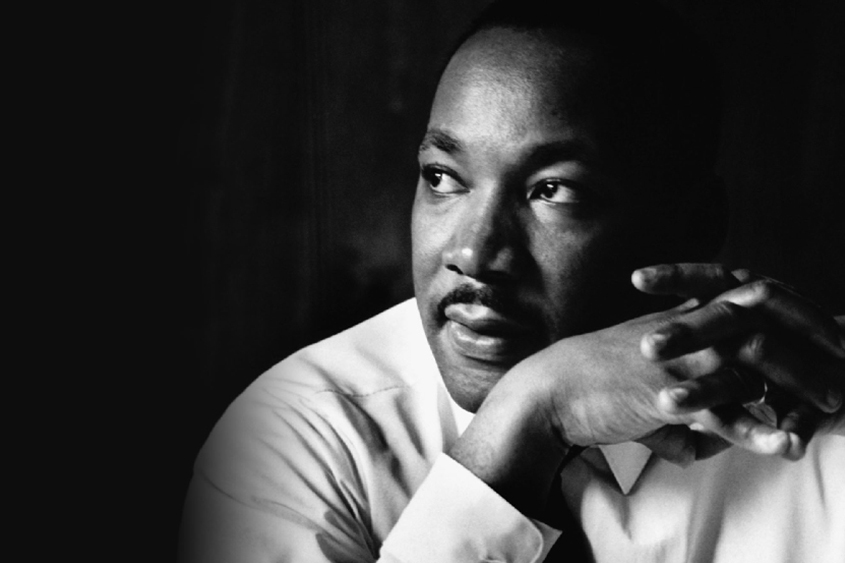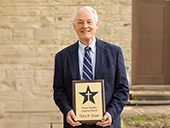Rising to the Call of Christ
This article is over six months old and may reference former titles for DBU faculty or staff, discontinued programs, or other details that have since changed. If you have any questions, please contact us at news@dbu.edu, or (214) 333-5172.

“He has shown you, O mortal, what is good. And what does the Lord require of you? To act justly and to love mercy and to walk humbly with your God.” – Micah 6:8
In Martin Luther King’s personal notes, he wrote the following about Micah 6:8: “Here again we find one of the high watermarks of the O.T. The divine demand upon men is expressed in terms of elemental simplicity—justice and kindness between man and man, and a humble walk with God. This was religion as Micah saw it. Jehovah’s good will is served not by a careful observance of the ritual, or by the bringing of sacrifices, whatever may be their intrinsic value, but by a life in accord with the principles of righteousness, by the diligent practice of kindness and brotherliness, and by a living fellowship with God in the spirit of humility. Few notions so sublime have been conceived in the whole history of religion.”
Connected to these thoughts are the words Dr. King spoke the night before he was assassinated. In a passage of his speech, he turned to the familiar story of the Good Samaritan. As we know, in the parable, Jesus was asked: “Who is my neighbor?” We recall that Jesus flipped that question on the audience and responded: “Who acted like a neighbor to the one in crisis?”
Dr. King discussed the difference between the Priest, the Levite, and the Samaritan as they each pondered just what their responsibility to the man was on the side of the road. King stated, “And so the first question that the priest asked, the first question that the Levite asked was, ‘If I stop to help this man, what will happen to me?’ But then the Good Samaritan came by, and he reversed the question: ‘If I do not stop to help this man, what will happen to him?’”
Who are we emulating? The priest and Levite, or the Samaritan?
Dr. King challenges us to recognize that it is not about what will happen to each of us, but rather, what will happen to others if we fail to respond to God’s call. Additionally, we may say we want to respond to injustice, but perhaps we convince ourselves it is not the right time. Or we’re afraid to upset someone by being “too political.”
Dr. King’s words from his “Letter from a Birmingham Jail” should resonate in our ears when we hesitate to respond to injustice: “Perhaps it is easy for those who have never felt the stinging darts of segregation to say, ‘Wait.’ But when you have seen vicious mobs lynch your mothers and fathers at will and drown your sisters and brothers at whim; when you have seen hate-filled policemen curse, kick and even kill your black brothers and sisters…you will understand why we find it difficult to wait.” As Christians, we cannot delay in addressing injustice.
Returning to Micah 6:8, what does this verse require of us?
- To act justly. In what areas of our lives do we need to act justly? Where is injustice thriving that we should intervene?
- To love mercy. Do we seek to demonstrate mercy in our relationships? Do we connect with where people are coming from to understand the need for mercy in their lives? Have we given thanks for the mercy shown to us?
- To walk humbly. Our world needs humble leaders who follow God’s will – not leaders who seek the glory, fame, or attention.
May we be leaders who put others first. May we be servant leaders who epitomize the requirements of this verse and always selflessly ask, “If we do not stop to help those who are suffering, what will happen to them?”
Dr. Jack Goodyear is the Dean at the Cook School of Leadership at DBU.








